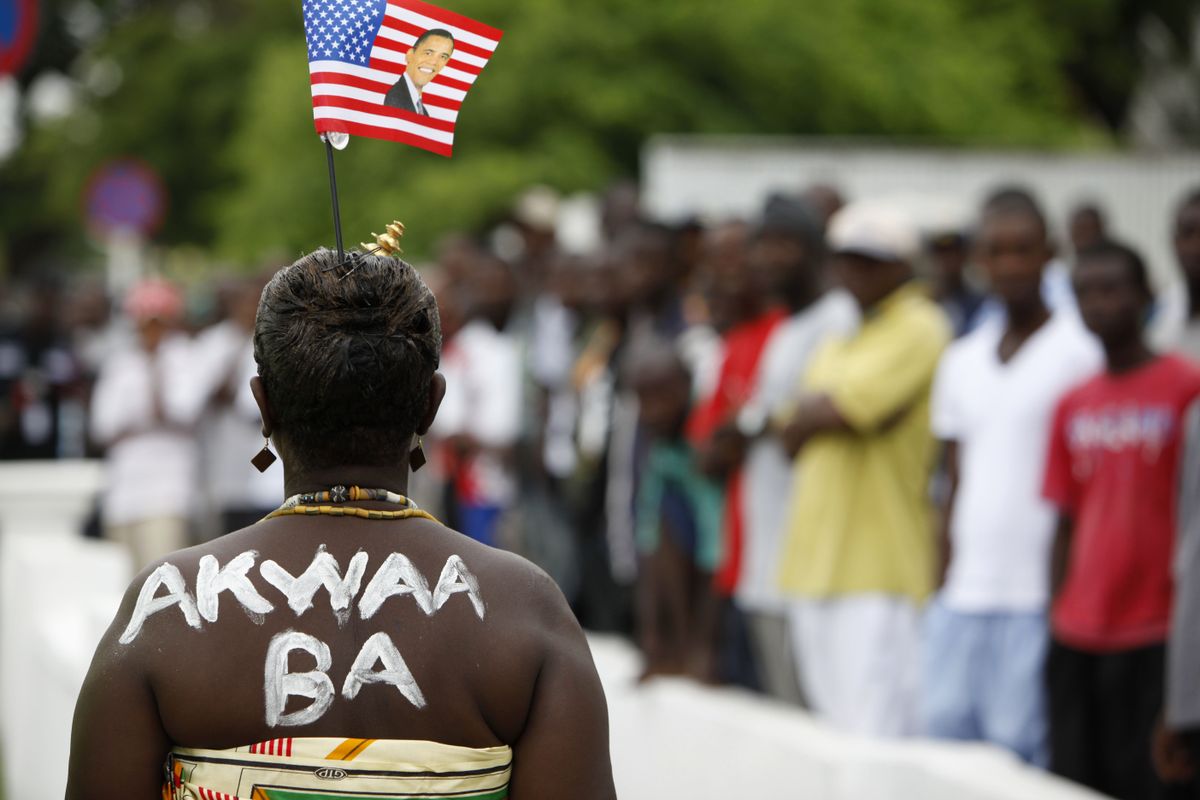Obama urges Africans to guide own destiny
He invokes own history in addressing Ghana’s parliament

ACCRA, Ghana – President Barack Obama, making his first visit to sub-Saharan Africa since taking office, called on people of the continent Saturday to seize control of their future by building strong, democratic institutions and eliminating corruption.
Obama, who is being feted by Ghanaians thrilled by the visit of the United States’ first black president, did not revel in the adulation he received here during a speech to a special session of parliament. Rather, he delivered a blunt but optimistic message about how Africa can shape its destiny.
“We must start with a simple premise that Africa’s future is up to Africans,” he said.
While Obama nodded to the continent’s colonial past as a factor in its struggles, he said Africa’s contemporary problems could hardly be blamed on its former European overseers.
“The West is not responsible for the destruction of the Zimbabwean economy over the last decade, or wars in which children are enlisted as combatants,” Obama said.
Invoking the experience of his late Kenyan-born father, Obama said he knows the toll exacted by the corruption that grips many parts of Africa. “In my father’s life it was partly tribalism and patronage in an independent Kenya that for a long stretch derailed his career, and we know that this kind of corruption is a daily fact of life for too many.”
Obama said the corruption has continued unchecked in too many parts of Africa, with leaders fleecing their nations’ treasuries, brutally repressing dissent and creating an environment that allows their functionaries to solicit bribes.
“No person wants to live in a society where the rule of law gives way to the rule of brutality and bribery,” Obama said. “That is not democracy, that is tyranny, and now is the time for it to end.”
The president’s speech came during a whirlwind day in Ghana. Before his speech, the president and first lady Michelle Obama visited La General Hospital, a public facility that focuses on child and reproductive health.
The city was dotted with large posters of Obama as his motorcade made its way to the hospital. At one point, it passed by a banner draped along the several floors of an apartment building. “Welcome President Obama,” it said.
Later in the day, the Obamas boarded the presidential helicopter for a visit to Cape Coast Castle, which during the slave trade was used to warehouse hundreds of thousands of slaves before they were packed into the holds of ships for the journey west.
After that he was to take part in a formal departure ceremony at the airport before returning to Washington.
While Ghanaians are excited about Obama’s presence, relatively few got to see him. The streets were completely cleared of vehicles other than those of the motorcade. Small clutches of people gathered along the road watching Obama’s motorcade go by, but there were no massive crowds.
By contrast, when President Bill Clinton visited in 1998 a huge event attracted an estimated 500,000 in a public square downtown.
“The president wanted to use this visit to shine a light on Ghana and on what it is doing so successfully rather than on him,” press secretary Robert Gibbs said when asked about the relatively subdued nature of Obama’s visit.
White House officials said Obama chose Ghana for his first visit to sub-Saharan Africa as president because of its recent record of peaceful, democratic elections. That political stability is being accompanied by impressive economic growth in this still-poor country, a relative success story that Obama thinks can be replicated across Africa.
“Here in Ghana, you show us a face of Africa that is too often overlooked by a world that sees only tragedy or the need for charity,” Obama said in his speech, drawing applause from the audience which included woman and men in business suits sitting next to men in traditional kente wraps, that left one shoulder exposed. “The people of Ghana have worked hard to put democracy on firmer footing, with peaceful transfers of power even in the wake of closely contested elections.”